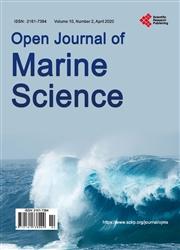Presence of Infectious Hypodermal and Haematopoietic Necrosis Virus (IHHNV) in Native Shrimps from Southern Mexico
引用次数: 5
Abstract
A survey for Infectious Hypodermal and Haematopoietic Necrosis Virus (IHHNV) and White Spot Syndrome Virus (WSSV) was performed during two catching seasons of native shrimps in the Yucatan Coast in the Gulf of Mexico. The mtDNA COI barcode identified two endemic species; the southern pink shrimp Penaeus notialis (Perez Fantante, 1967) and the northern pink shrimp Penaeus brasiliensis (Latreille, 1987) (previously described as Farfantepenaeus brasiliensis). The prevalence of IHHNV was of 18.18% in 2016, and of 8.57% in 2017. All organisms tested negative for WSSV. This is the first identification of wild shrimps in the state of Yucatan Mexico by mtDNA COI barcode as well as the first identification of IHHNV in such species. The presence of IHHNV in wild shrimps populations has a potential of persisting in the coast of Yucatan with putative detrimental effect on local fisheries because once established in natural waters and hosts; such pathogens are almost impossible to eradicate.墨西哥南部本地虾中存在感染性皮下和造血坏死病毒(IHHNV)
在墨西哥湾尤卡坦海岸的两个本地虾捕捞季节,对感染性皮下和造血坏死病毒(IHHNV)和白斑综合征病毒(WSSV)进行了调查。mtDNA COI条形码确定了两个特有物种;南部粉虾北方对虾(Perez Fantante,1967)和北部粉虾巴西对虾(Latreille,1987)(以前称为巴西法尔凡特佩奈乌斯)。2016年IHHNV的流行率为18.18%,2017年为8.57%。所有生物体的WSSV检测结果均为阴性。这是墨西哥尤卡坦州首次通过mtDNA COI条形码识别野生虾,也是首次在此类物种中识别IHHNV。IHHNV在野生虾种群中的存在有可能在尤卡坦海岸持续存在,并对当地渔业产生不利影响,因为一旦在自然水域和宿主中建立;这种病原体几乎不可能根除。
本文章由计算机程序翻译,如有差异,请以英文原文为准。
求助全文
约1分钟内获得全文
求助全文

 求助内容:
求助内容: 应助结果提醒方式:
应助结果提醒方式:


